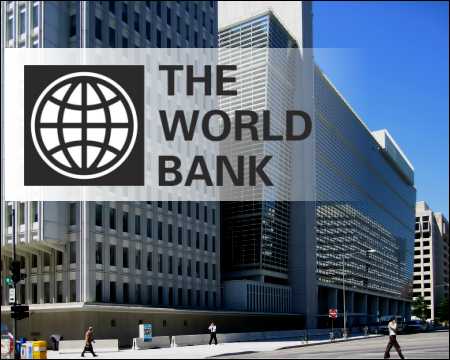The World Bank has urged governments at the sub-national level in the country to adopt fiscal measures, including appropriate reform initiatives, as a strategic option of reducing their growing fiscal deficits and by implication, improve quality of life of the citizenry.
The Breton Woods institution gave the advice in its just published Nigeria Bi-Annual Economic Update which analyzed specifically on the fiscal performance of the various states.
According to the report, the fiscal position of the sub-national governments were adversely affected by the lingering shortfall in revenue largely occasioned by the volatility of the international oil market with the attendant negative implications for their capacities to deliver services.
Noting that despite some positive indices noticed in the nation’s economy, including the growth of the Gross Domestic Product, GDP, by 1.4 percent in the third quarter of this year which reflected in the recovery in oil production, good performance in agriculture, and stronger non-oil industry growth, many fiscal challenges remained at different levels of government.
Specifically, the Bank reported that the special focus showed that “the fiscal deficit of states increased significantly from an estimated 0.2 percent of GDP in 2014, to 1 percent in 2015 and 2016. Also, total state debt increased from 2.4 percent in 2014 to 4.0 percent of GDP by the end of 2016. The states’ fiscal crisis led to two sets of financial assistance packages by the Federal Government. The second—the Budget Support Facility (hinged on a 22-point Fiscal Sustainability Plan)—was advanced in mid-2016 and due to close in mid-2017”
Commenting on the Update, the Bank’s Lead Economist for Nigeria, Ulrich Bartsch, pointed out that “in light of the continuing fiscal pressures, there is a strong need to strengthen the performance of the states through the full and sustained implementation of reforms to increase internally-generated revenues and state spending efficiency, and to strengthen state debt management and fiscal transparency”.
The report further showed that while all states had made progress on the reform measures included in the 22-point Fiscal Sustainability Plan, implementation of the Plan remained incomplete.
The World Bank canvassed, as an urgent panacea to the fiscal inefficiency at the sub-national government levels, “the need to strengthen fiscal performance through sustaining the state fiscal reforms that have been accelerated in the past 2 years is of paramount importance”.
It would be recalled that the most recent World Bank 2018 ‘Doing Business’ report indicated some improvements in Nigeria’s investment climate, and in its efforts to continue to diversify the government’s sources of revenue.






